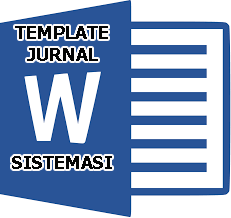Arduino Mega to Build a System for Student Evaluation and Attendance
Abstract
Keywords
Full Text:
PDFReferences
M. Kaka, "The Digitization of Iraqi Universities Requirements in the View of the Digital TransformationIinitiatives," Human Sciences Research Journal, vol. 34, pp. 721-740, 2023. DOI: https://www.scribd.com/document/687659403/392-Published-Paper.
O. O. Mohammed and S. M. Mohi-Aldeen, "Designing an Electronic Platform for the Distribution and Managing Undergraduate Projects," Al-Rafidain Journal of Computer Sciences and Mathematics, vol. 51, no. 5, pp. 951-969, 2021. DOI: https://www.rafidainjournals.com.
Ismael, Y., 2025. " Improved Security using Two Levels of Steganography". AIP Conference Proceedings, https://doi.org/10.1063/5.0259914.
W. A. Alhadidiu and S. M. Mohi-Aldeen, "Land Ownership Management System in Mosul City," Al-Rafidain Journal of Computer Sciences and Mathematics (RJCM), vol. 18, no. 1, pp. 74-83, 2024. DOI: https://doi.org/10.33899/csmj.2024.144939.1097.
S. S. Mohammed and Y. H. Ismael, "A Survey on E-Payment Systems," Iraqi Journal of Statistical Sciences, vol. 21, no. 1, pp. 127-137, 2024. DOI: https://doi.org/10.33899/IQJOSS.2024.183253.
A. Shaikh, S. Salian, A. Gupta, A. Gairola, and U. Goradiya, "Web Application for Student Performance Evaluation and Remuneration System," International Journal of Scientific Research in Computer Science, Engineering and Information Technology, vol. 10, no. 2, pp. 629-633, 2023. DOI: https://doi.org/10.32628/CSEIT23902100.
G. Bharathy, S. Bhavanisankari, and T. Tamilselvi, "Smart Attendance Monitoring System using IoT and RFID," International Journal of Advances in Engineering and Management, vol. 3, no. 6, pp. 1307-1313, 2021. DOI: https://doi.org/10.35629/5252-030613071313.
N. Malhotra, "Attendance and Assessment System," Journal of Emerging Technologies and Innovative Research (JETIR), vol. 5, no. 8, pp. 65-70, 2018. DOI: www.jetir.org.
A. Aziz, M. Golap, and M. Hashem, "Student’s Academic Performance Evaluation Method using Fuzzy Logic System," Proc. 1st Int. Conf. Adv. Sci. Eng. Robot. Technol. (ICASERT), pp. 1-6, 2019. DOI: https://doi.org/10.1109/ICASERT.2019.8934496.
P. Addagatla, "Arduino based Student Attendance Monitoring System using GSM," International Journal of Engineering Research and Technology (IJERT), vol. 8, no. 7, pp. 338-344, 2019. DOI: http://www.ijert.org.
M. Wen, N. Ahmad, and S. Ruslan, "Arduino based Outing and Attendance System for Boarding School Students," Indonesian Journal of Electrical Engineering and Computer Science, vol. 20, no. 2, pp. 1053-1061, 2020. DOI: http://ijeecs.iaescore.com.
N. Abd El-Mawla, M. Ismaiel, and ASQR Team, "Smart Attendance System using QR-Code, Finger Print and Face Recognition," Nile Journal of Communication & Computer Science, vol. 2, no. 1, pp. 1-16, 2022. DOI: https://njccs.journals.ekb.eg.
G. P. Jadhav, P. Gondchawar, S. V. Khedkar, V. Darshanala, and V. S. Ingole, "Student Performance Evaluation System Web Application," International Journal of Advanced Research in Science, Communication and Technology, vol. 2, no. 6, pp. 417-427, 2022. DOI: https://doi.org/10.48175/568417.
N. Alruwais and M. Zakariah, "Evaluating Student Knowledge Assessment using Machine Learning Techniques," Sustainability, vol. 15, no. 7, p. 6229, 2023. DOI: https://doi.org/10.3390/su15076229.
S. M. Mahdi, M. A. M. Al-Obaidi, and R. H. Mahdi, "Comparative Study of Arduino Types and Raspberry Pi with Programming Languages," Journal La Multiapp, vol. 3, no. 5, pp. 250-255, 2022. DOI: https://doi.org/10.37899/journallamultiapp.v3i5.740.
N. A. Salim and M. Y. Kashmoola, "Design a Smart Reservation for Parking System," Rafidain Journal of Computer Sciences and Mathematics, vol. 15, no. 2, pp. 65-75, 2021. DOI: https://csmj.mosuljournals.com/index.php/csmj/article/view/752/752.
A. H. Ali and R. Z. Mahmood, "Bresenham’s Line and Circle Drawing Algorithm using FPGA," Rafidain J. Comput. Sci. Math., vol. 15, no. 2, pp. 39-49, 2021. DOI: https://csmj.mosuljournals.com/index.php/csmj/article/view/752/752.
A. Atri and A. S. Tiwari, "Home Automation using HMI Display," Bachelor of Technology Project Report, Jaypee University of Information Technology, Waknaghat, 2023. DOI: http://www.ir.juit.ac.in:8080/jspui/bitstream/123456789/9937/1/Home%20Automation%20using%20HMI%20Display.pdf.
S. Raj, K. Srivasan, R. Vijay, K. Prasanth, and B. Pranav, "Real-Time Clock using Arduino," Dogo Rangsang Research Journal, vol. 13, no. 5, pp. 82-87, 2023. DOI: https://www.journal-dogorangsang.in/no_1_Online_23/15_may.pdf.
T. Prajapati, V. Dahale, K. Ingole, and S. Helambe, "Noise Informer using Arduino Nano and GSM Module," International Journal for Research in Engineering Application & Management (IJREAM), Special Issue - NCRICE, pp. 77-80, 2019. Available at: http://www.farnell.com/datasheets/1682238.pdf.
DOI: https://doi.org/10.32520/stmsi.v14i3.5114
Article Metrics
Abstract view : 642 timesPDF - 63 times
Refbacks
- There are currently no refbacks.

This work is licensed under a Creative Commons Attribution-ShareAlike 4.0 International License.









